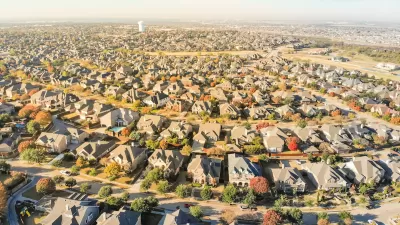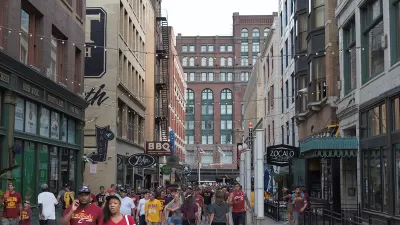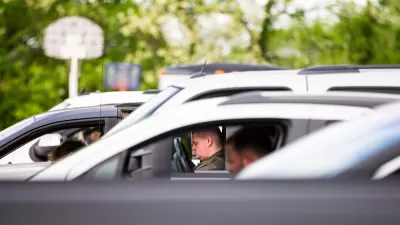Low-income families living in high-sprawl neighborhoods are limited in their access to education, jobs, and other amenities, often trapping them in a cycle of poverty.

New research from the University of Utah reveals that sprawl can have a measurable, negative economic impact on low-income American households.
According to a piece in Science Blog, “A series of studies from the University of Utah has found that children from low-income families who grow up in areas characterized by urban sprawl face significantly reduced earning potential compared to those raised in denser neighborhoods. The research provides the most detailed evidence yet of how city planning decisions could be reinforcing cycles of poverty across generations.”
The researchers used data from more than 71,000 U.S. census tracts, defining sprawl as “urban environments with poor pedestrian access, heavy car dependency, and sharp separation between residential, commercial and business areas.” According to the study, the annual expected income of a person growing up in a very low sprawl tract is, on average, roughly 10 percent higher than that of people brought up in high-sprawl neighborhoods.
Perhaps most striking is how sprawl affects families differently based on income level. While children from low-income families see reduced earning potential in sprawling areas, the opposite appears true for wealthy families.
The researchers note that while their study does link sprawl and lowered social and economic mobility, the causation is not entirely clear. However, “local city planners and officials need to consider the broader social implications and choose zoning patterns and regulations that are best for all residents, particularly trying to reduce sprawl and increase infill development may have a long-lasting positive impact on children’s economic possibilities.”
FULL STORY: Urban Sprawl May Trap Low-Income Families in Poverty Cycle

Planetizen Federal Action Tracker
A weekly monitor of how Trump’s orders and actions are impacting planners and planning in America.

Maui's Vacation Rental Debate Turns Ugly
Verbal attacks, misinformation campaigns and fistfights plague a high-stakes debate to convert thousands of vacation rentals into long-term housing.

San Francisco Suspends Traffic Calming Amidst Record Deaths
Citing “a challenging fiscal landscape,” the city will cease the program on the heels of 42 traffic deaths, including 24 pedestrians.

Amtrak Rolls Out New Orleans to Alabama “Mardi Gras” Train
The new service will operate morning and evening departures between Mobile and New Orleans.

The Subversive Car-Free Guide to Trump's Great American Road Trip
Car-free ways to access Chicagoland’s best tourist attractions.

San Antonio and Austin are Fusing Into one Massive Megaregion
The region spanning the two central Texas cities is growing fast, posing challenges for local infrastructure and water supplies.
Urban Design for Planners 1: Software Tools
This six-course series explores essential urban design concepts using open source software and equips planners with the tools they need to participate fully in the urban design process.
Planning for Universal Design
Learn the tools for implementing Universal Design in planning regulations.
Heyer Gruel & Associates PA
JM Goldson LLC
Custer County Colorado
City of Camden Redevelopment Agency
City of Astoria
Transportation Research & Education Center (TREC) at Portland State University
Jefferson Parish Government
Camden Redevelopment Agency
City of Claremont





























